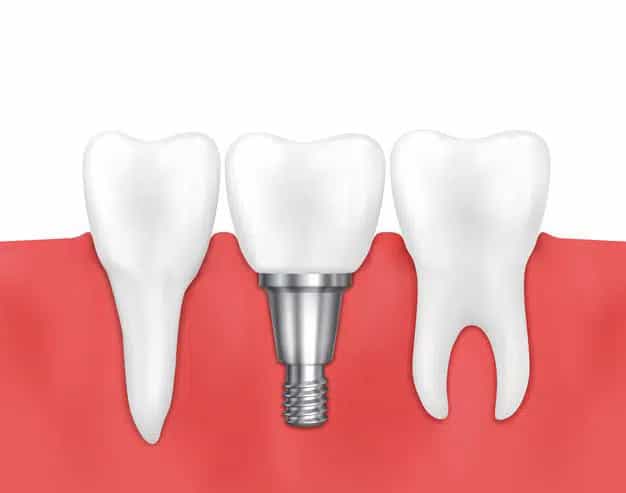-
Mon- Sat 08:00-18:00
-
Call Us Now 1300 99 1300

Dental implants are artificial replacements for natural teeth. Made of titanium, they are designed to be placed in the jawbone to act as a replacement for the root of a tooth. In some cases, other materials such as zirconia may be used.
Dental implants offer many benefits, including:
As with any other dental surgery, there are some risks associated with dental implants, including:
However, these risks are generally low and can be minimized by working with an experienced implant dentist. In addition, proper oral hygiene and regular dental visits can help reduce the risk of complications.

The cost of dental implants varies depending on a number of factors, including the number of implants needed, the type of implant used, and the location of the implant. In general, dental implants can range anywhere from $1,000 to $3,000 per tooth.
Dental insurance in Australia operates uniquely, and having a good grasp of how it functions is crucial to navigating your oral health needs effectively. Here’s what you should know:
3. Major Dental Procedures: Dental treatments like dental implants, crowns, bridges, dentures, and veneers are not what dental insurance usually covers in Australia. They call these the “big tooth jobs,” you might have to wait for at least a year before they help pay for them. This means you must hold the insurance for a specified period before accessing coverage for major dental work. Additionally, these procedures are often subject to annual limits set by the insurance scheme.
Most insurance do not cover dental implants. However, there are few insurance plans that may cover a portion of the cost of the implant or the crown (tooth-coloured cap) used to restore the implant.
If your insurance company covers half of the cost for dental implants, you will have to pay remaining amount from your pocket. In most cases, basic dental insurance policies do not offer any cosmetic coverage at all and are just limited to basics like teeth cleaning and routine check-ups.
If your insurance isn’t covering dental implants, you may want to consider looking into a dental implant financing plan.
Many dental implant financing plans offer low monthly payments and no interest rates. This can be one of the best options for those who need dental implants but do not have the cash to pay for them upfront.
Financing a dental implant procedure can be a great way to get the treatment you need without breaking the bank. Speak to your dentist today to learn more about your financing options.
The dental implant procedure typically involves three steps:
Step 1: The implant dentist will place the implant in the jawbone. This is done through a minor surgical procedure.
Step 2: Once the implant has bonded with the jawbone (a process that can take several months), the implant dentist will place an abutment, or connector piece, on the implant.
Step 3: Finally, the implant dentist will place a dental crown (artificial tooth) on top of the abutment. The crown is made to match the colour and shape of your natural teeth.
Good oral hygiene habits are important for maintaining healthy dental implants. Be sure to brush and floss your teeth at least twice a day and visit your dentist regularly for cleanings and check-ups. In addition, avoid smoking, which can increase the risk of implant failure.
Most people having missing teeth due to injury, disease, or tooth decay are candidates for dental implants. However, you must know that dental implant may not be meant for everyone. To be an ideal candidate for dental implants, you must meet the following criteria:
If you don’t have private dental insurance, there are ways to make paying for dental care easier. Here are some usual payment options:
Dental implants improve your smile and self-confidence. While they are typically not covered by insurance, the cost of dental implants is worth it for many people. Be sure to work with an experienced implant dentist and follow good oral hygiene habits to ensure long-lasting success. If you want our specialist to carry out the dental implant procedure on you, contact us. Call us on (03) 9999 3328 or drop an email at . to book an appointment. Care Family Dental provides cost-efficient full mouth dental implants in Australia, with a heart for seniors through free implant options.
The short answer is yes; you can get an insurance policy that covers dental implants in Australia. To get coverage for dental implants, you must purchase a dental insurance policy that specifically covers them. Not all policies do, so be sure to check the fine print before you buy. There are a few different ways to go about this. First, you could ask your current insurance provider if they offer a policy that covers dental implants. If they don’t, they may be able to refer you to another company. Another option is to search for policies online or through an independent broker. This can be an excellent way to compare rates and coverage.
Dental implants, in most cases, aren’t covered by insurance policies. However, some ways to finance dental implants if you need them. There are a few different options for payment plans which can help make the cost of dental implants more affordable. You may ask your dentist what payment plan might work best for you based on your financial situation. There are also several government and charity assistance programs that may be able to help cover the cost of dental implants.
Dental implants are definitely worth the time, money, and effort. Not only do they look beautiful and natural, but they also last a long time as they are durable. Implants are made of titanium, a biocompatible material that fuses with bone over time. This creates very strong support for the tooth that can withstand the daily wear and tear of chewing. In addition, implants are ideal for anchoring dentures, making them much more secure and comfortable than traditional ones. If you’re considering dental implants, be sure to talk to a dentist about whether they suit you.








